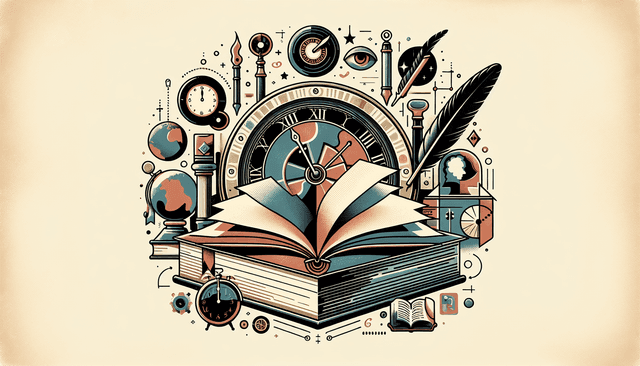Table of Contents
Have you ever wondered what really makes a book a classic? You’re not alone! Many of us have read books hailed as “classics” and pondered what sets them apart from the countless others out there.
If you’ve ever felt a bit lost in the literary sea, fear not! Stick around, and together we’ll untangle the mystery. We’ll dive into everything from timeless themes and unforgettable characters to the impact of history and culture.
Get ready to explore the writing styles that captivate us and the reasons these books stick around for generations. By the end, you’ll have a clearer picture of what transforms a mere story into a cherished classic!
Key Takeaways
- A classic book resonates with readers over generations and reflects the human experience.
- Timeless themes like love, betrayal, and identity make classic literature relatable to different eras and cultures.
- Memorable characters embody universal struggles that resonate with readers, making them relatable or aspirational.
- Cultural and historical context enriches the narrative and is vital for understanding classic literature.
- The quality of writing and literary style contribute significantly to a book’s classification as a classic.
- Classics influence other works and societal norms, showcasing their lasting impact on literature and culture.
- Longevity and ongoing relevance highlight a classic’s connection to modern themes and societal issues.
- Reader reception over time can illustrate a classic’s uniqueness and its evolving significance in society.

1. Understand the Definition of a Classic Book
A classic book is often valued for its ability to resonate with readers over generations.
As Elizabeth Bluemle pointed out, “a book cannot be considered a classic before it has stood the test of generations of readers.”
Think about your own reading history: have you revisited that one novel that just spoke to you time and again?
These books typically offer insights into the human experience that remain relevant regardless of the time period.
If you’re wondering whether a book deserves a spot on your shelf, consider how it has influenced others and if it sparks conversations.
2. Recognize Timeless Themes in Classic Literature
Classic literature often explores timeless themes such as love, betrayal, and the human condition.
These universal topics allow people from different backgrounds and eras to connect with the text.
A great example is *Pride and Prejudice* by Jane Austen, which delves into issues of class and romance—subjects that continue to engage readers today.
To uncover these themes, look for motifs that appear repeatedly as you read.
Keep a notebook handy to jot down these insights; they could enrich your understanding and enjoyment of the book.
3. Identify Memorable Characters That Resonate Across Generations
Memorable characters in classic literature often embody traits that reflect the struggles and values of humanity.
Take, for instance, characters like Atticus Finch from *To Kill a Mockingbird*, who stands up for justice in a flawed society.
To identify these characters, consider their moral dilemmas, challenges, and growth throughout the story.
Ask yourself how these characters make you feel—are they relatable, aspirational, or even flawed?
A good exercise is to discuss these characters with friends or fellow readers to see how their perspectives enrich your understanding of the text.

4. Analyze the Impact of Cultural and Historical Context
The cultural and historical context surrounding a classic book often enriches its narrative and themes.
Understanding the time period in which a book was written can provide valuable insights into its characters and plots.
For example, *The Grapes of Wrath* by John Steinbeck reflects the struggles of the Great Depression, illustrating the plight of thousands during that era.
To analyze this context, you can read about the historical events that influenced the author or the story.
Make connections between these events and the book’s themes to deepen your understanding.
5. Study the Quality of Writing and Literary Style
The literary style of a classic book often distinguishes it as a remarkable piece of literature.
Pay attention to the author’s use of language, structure, and narrative techniques—these contribute to the overall impact of the work.
For instance, the stream-of-consciousness technique in Virginia Woolf’s *Mrs. Dalloway* immerses readers into the character’s inner thoughts.
Try reading passages aloud to appreciate the rhythm and flow of the writing.
Understanding these stylistic choices enhances your appreciation of the text and its craftsmanship.
6. Explore the Book’s Influence on Other Works and Society
One of the hallmarks of a classic book is its ability to influence both literature and societal norms.
Many classic books have inspired adaptations, retellings, and new works in various genres.
For example, *1984* by George Orwell has been referenced in countless discussions surrounding surveillance and government control.
To witness this influence, consider reading articles or essays that discuss the book’s impact on modern literature or culture.
Recognizing these connections can spark further interest in both the classic and contemporary works it has inspired.
7. Consider the Book’s Longevity and Continued Relevance
The longevity of a classic book reveals its ability to remain relevant through the ages.
Books like *The Catcher in the Rye* by J.D. Salinger continue to resonate with modern readers due to their exploration of themes like alienation and identity.
To appreciate this, think about how these themes reflect ongoing societal issues today, like mental health and social conformity.
You can keep a journal to note how the themes of a classic book relate to current events or personal experiences.
This connection helps to highlight the timeless nature of these works and their ongoing importance.
8. Evaluate Reader Reception Over Time
How a classic book was received when first published can tell you a lot about its uniqueness and influence.
Take, for instance, *Moby Dick*, which was not widely appreciated during Herman Melville’s lifetime but has since become an iconic piece of literature.
Research reviews from the book’s initial release and how they compared to today’s perspectives.
You can find this information in literary journals or through sites that track reader reviews over the decades.
Analyzing these shifts in reception can provide a deeper understanding of how the narrative and societal context evolve.
FAQs
A classic book is typically characterized by its lasting significance, universal themes, rich storytelling, and ability to evoke emotion and reflection across different time periods and cultures.
Timeless themes, such as love, sacrifice, and identity, resonate with readers across generations, making classic literature relatable and relevant, allowing for deep emotional engagement and intellectual exploration.
Cultural context provides the backdrop against which a classic book was written, influencing its themes, characters, and societal critiques, thereby enriching its understanding and significance over time.
Reader reception over time reflects how a book’s themes and messages resonate, evolve, and remain relevant, ultimately influencing its classification as a classic and its place in literary history.



